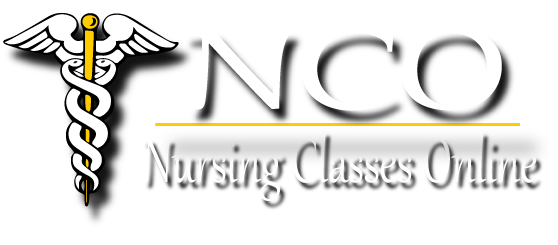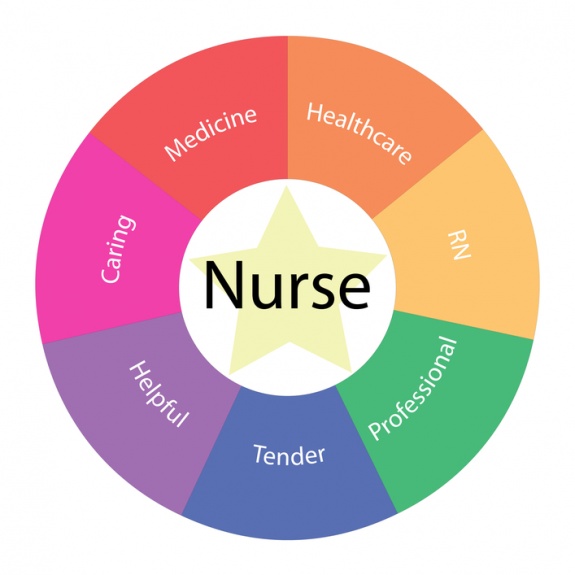Registered Nurse Job Description
Part of the registered nurse job description is to apply the nursing process to assess, promote, and restore patients’ to a functional level of health. As an important part of the multidisciplinary team, registered nurses care for the whole individual; providing compassionate, restorative care for patients and their families. In addition to patient care, RNs can significantly influence the quality of patient care by implementing patient safety and infection control measures, participating in continuing education courses or workshops, and working effectively with all members of the healthcare team. The following information provides a general job description for a registered nurse.
Minimum Job Requirements for a Registered Nurse
Education: Must be a graduate of an accredited diploma nursing program, associate’s degree in nursing program, or bachelor’s degree in nursing program and hold a current nursing license from the state where nursing is practiced.
Certifications: Current Basic Life Support (BLS) and Cardiopulmonary Resuscitation (CPR) are required.
RN Job Description: Common Skills
An RN will need to perform a wide range of physical, social, and intellectual skills as a practicing nurse. Here are some of the skills a RN can expect to perform.
- Infection control
- Continuity of care
- Nursing assessment, nursing diagnosis, planning, interventions, and evaluation of treatment plan
- Preparing a patient care plan
- Documenting patient care
- General understanding of lab and x-ray results
- Preparing patients for procedures and/or surgery
- Demonstrating therapeutic communication skills
- Multitasking
- Teaching patients and family members about health promotion and maintenance
- Administering medications, starting intravenous lines, drawing blood samples, performing blood glucose checks, obtaining body fluids for testing, and practicing infection control
- Maintaining physiological, pharmacological, and psychosocial knowledge
- Preventing patient falls/injuries
- Employing safety measures on the unit
- Assessing and maintaining inventory
- Expediting physician orders
- Supervising nurse aides and licensed practical nurses (LPN/LVN’s)
General Duties and Responsibilities
A professional nurse will perform many essential job functions ranging from communicating well with all members of the multidisciplinary team to teaching families how to care for their loved one in the home setting. Here are some of the general duties and responsibilities of a RN:
- Carrying out the physician’s orders
- Identifying and following-up with possible errors or hazards that could harm the patient
- Teaching patients and their families about their illness, disease, or injury
- Resorting patients to a level of independent function
- Regularly assessing and monitoring patients for changes in health status
- Checking and operating all equipment used on the unit to ensure proper function
- Providing timely, outcome based nursing care
- Offering accurate information pertinent to the patient’s care during shift-change
- Remaining on duty when the unit is inadequately staffed until replacements arrive
- Following hospital protocol when handling and disposing of bio-hazardous materials
- Demonstrating a desire to learn more about various diseases and treatments
- Maintaining open lines of communication with patients and their family members
- Being prepared to offer emergency care when needed
- Responding to disasters or other unforeseen events
- Keeping all information about patients and their families confidential
Typical Daily Duties
Although work duties will vary depending on the unit, specialty, and level of care provided, in most cases the RN will provide care based on the nursing process. Hospital shifts begin with a shift change report where the RN from the previous shift relays the important details related to the care of the patient to the RN assigned to care for the same patient on the next shift. Therapeutic communication between registered nurses occurs during shift change to ensure the patients receive continuity of care.
After report, an RN will begin the shift by communicating with the patients and their family members, assessing each patient for changes in their condition, and checking the physicians’ orders on all patients. Throughout the shift, RNs work closely with all members of the multidisciplinary team implementing the physician orders and performing necessary intervention improving the patient’s health outcomes. Finally, registered nurses are legally required to document the care they provide along with the patient’s response to that care throughout the shift.
Job Specialties
Some RNs prefer working in specialty areas, which often require additional skills training and/or certifications. These areas will have unique job descriptions. Here are some of the different specialty areas RNs can work:
- Hospice
- Home healthcare
- Critical care
- Transplant
- Long-term care
- Long-term care
- Radiology
- Emergency nursing
- Rehabilitation
- Critical care
- Medical-surgical nursing
- Psychiatric nursing
- Oncology
- Diabetes management
- Orthopedics
- Surgery
- Mother baby
- Pediatrics
- Geriatrics
For RNs who have sustained on the job injuries or for one reason or another desire less or no direct patient care there are several career options they can choose. Although job descriptions for each of these roles will vary greatly, they all center on promoting public health. Here are some of the less or no direct patient care options for a RN:
- Nursing education
- Forensic nursing
- Paralegal nursing
- Nursing informatics
- Pharmaceutical sales
- Nursing research
- Medical writing
- Infection control nursing
- Management














